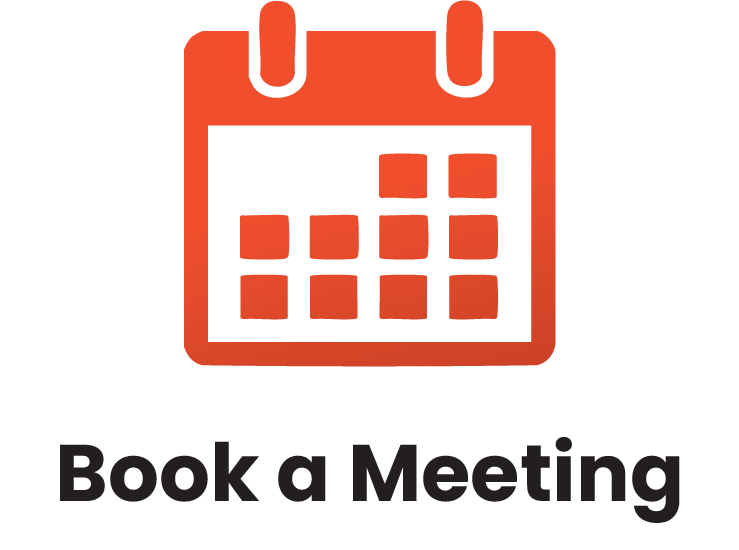Interactive training sessions led by experienced facilitators.
What is In-Person, Instructor-Led Training?
Our in-person training is delivered by a live facilitator who works directly with your team at your location. It’s our most popular format because it allows for real-time interaction, hands-on learning, and direct support.
Every session is tailored to your team’s specific goals, industry, and challenges—no generic, one-size-fits-all programs. Whether it’s a single session or a full training series, we design the experience to be relevant, practical, and fully aligned with your needs.
What is Live Webinar Training?
Live webinars are facilitator-led training sessions delivered online in real time. They’re ideal for teams working in different locations or with busy schedules.
This format offers shorter, more frequent sessions that are easy to coordinate—making it a convenient option for organizations with remote or distributed teams.
What is Virtual Classroom Training?
Virtual Classroom training is live, instructor-led training delivered online. It offers the same interactive experience as in-person sessions, with real-time discussions, group activities, and instructor feedback.
It’s a flexible option for organizations that want to reduce travel, save costs, or better fit training into busy schedules.
What is a Lunch & Learn Session?
Lunch & Learn sessions are short, facilitator-led training sessions delivered in person or online—typically during the lunch hour. They focus on specific topics or skills and offer a quick, engaging way to learn without a full-day commitment.
These sessions can be offered as one-time events or as part of a series, making them a great option for ongoing, bite-sized learning.
Online Learning
Enjoy our self-paced option and learn from anywhere!
$199.00 USD
Dealing With Difficult People
We can get into a routine where it feels like everyone we speak with is either having a bad day, or we are having a bad day ourselves. We feel like we constantly meet people who seem to be inconsiderate, stubborn, incorrigible, indecent, miserable, or passive-aggressive. Sometimes we can be equally awkward ourselves. While it might seem that the easiest remedy is to lock yourself up at home and avoid people, we eventually have to pick up the phone or step outside and have an interaction with somebody.
Success comes from understanding how we behave, as well as how we can influence others. If we approach difficulties as needing to take place in one or a series of conversations, and we approach those conversations with a plan, we will find that we have less difficult people to deal with. More often than not, we will also have more meaningful and significant conversations. In this one-day workshop, you will teach participants how to turn difficult situations into opportunities for growth.
LEARNING OBJECTIVES
Learning Objectives
- Recognize how their own attitudes and actions impact others.
- Use new and effective techniques for dealing with difficult people.
- Use techniques for managing and dealing with anger.
- Develop coping strategies for dealing with difficult people and difficult situations.


COURSE OUTLINE
Conflict as Communication
This lecture will help participants define conflict. Participants will also explore how conflict is a very normal part of healthy relationships. To wrap up the session, they will complete a self-assessment to help them analyze how they currently handle conflict and how they might be able to improve.
Benefits of Confrontation
This session will give participants a framework for deciding whether or not to become involved in a situation. Participants will also identify some benefits that may arise if they do decide to get involved.
Preventing Problems
There are several key ways that we can prevent problems from occurring. These methods will be examined in a lecture and in small group work.
Getting Focused
If, as leaders, we are content to only deal with the surface issues, and we are afraid to dig and get at the deeper issues, we will not create a better workplace. This session will give participants some ways to get to the heart of a problem.
Managing Anger
Too many people are angry! This session will give participants some guidelines for managing their anger, dealing with angry people, and using assertive anger.
Dealing with Problems
In this session, participants will work in small groups to explore eight ways of dealing with problems.
The Three-Step Conflict Resolution Model
During this session, we will look at a three-step process that can help participants resolve conflict. Participants will also have an opportunity to apply the model to a difficult situation.
Practice Makes Pretty Good
In this session, participants will role play a difficult situation using the scenario from their pre-assignment.
Changing Yourself
Earlier we discussed how our attitudes and actions impact others. In this session, we will take a deeper look at how negative attitudes can cause negative interactions, and what we can do to turn those attitudes around.
Why Don’t People Do What They Are Supposed To?
There are a million possible answers to this question, but we will discuss the ten most common reasons.
De-Stress Options to Use When Things Get Ugly
To wrap up the workshop, we will share six de-stressing techniques that participants can use when things get difficult.


















